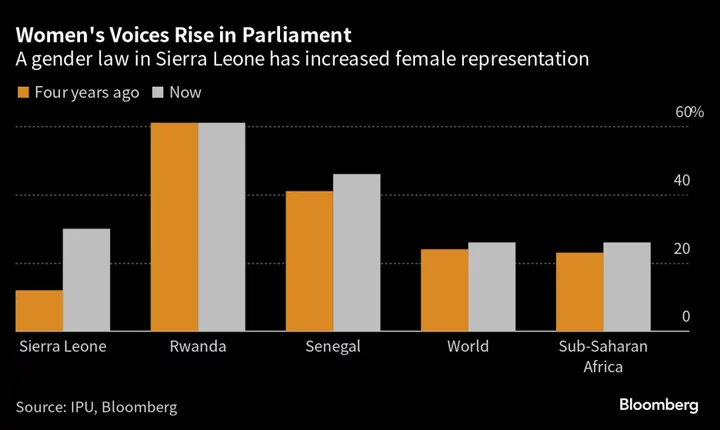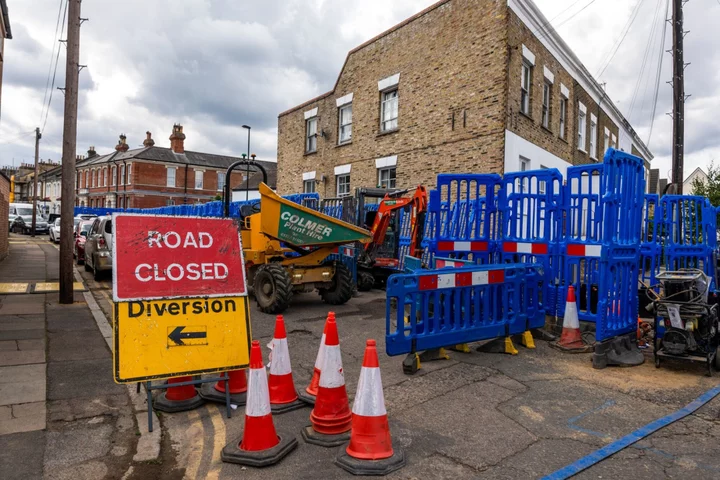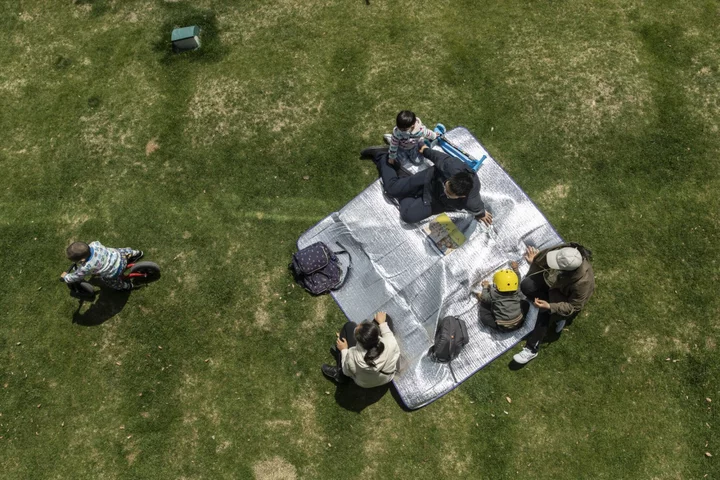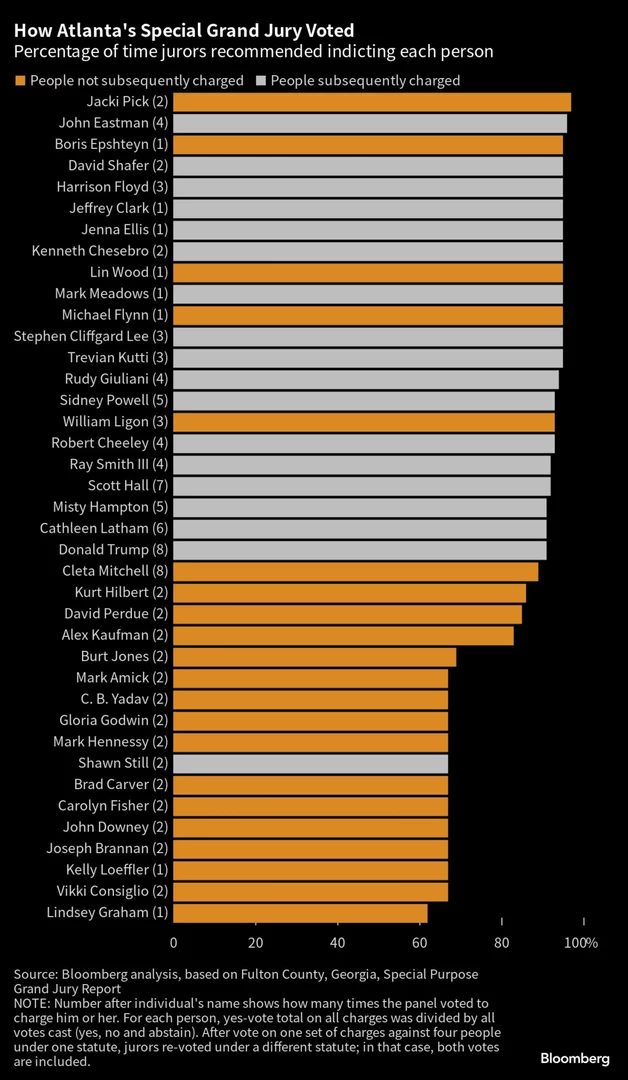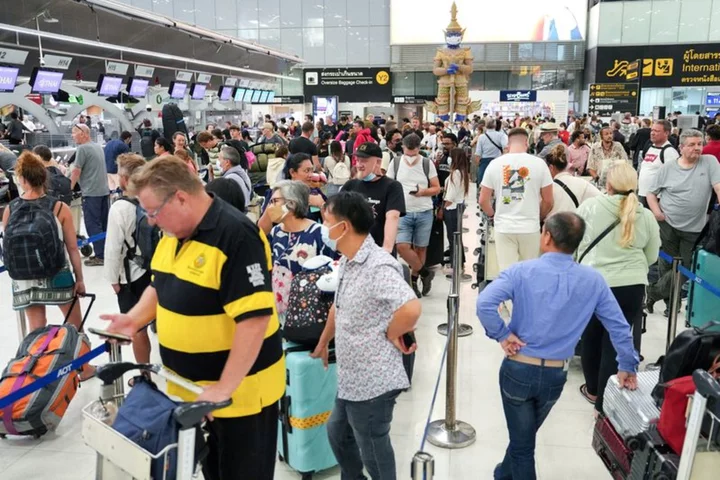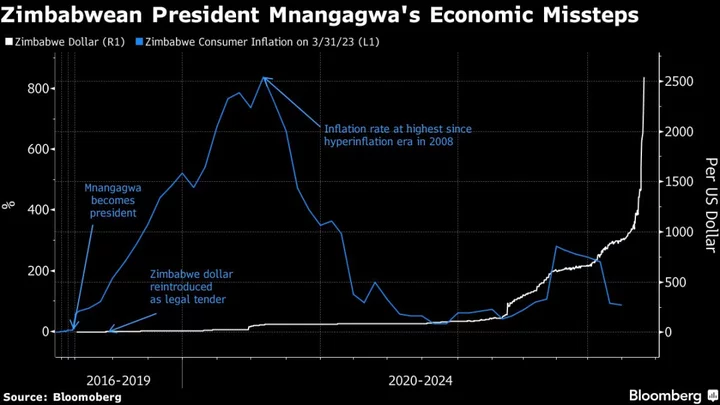The number of women lawmakers in Sierra Leone is set to more than double after the West African nation’s first legislative elections since a law was passed to boost female representation.
Forty-one women were voted into parliamentary posts out of the 135 seats up for election, according to electoral commission data compiled by the Freetown-based Institute for Governance Reform. That amounts to 30% of elected seats, the target set by the administration of President Julius Maada Bio, who was reelected in the June 24 ballot.
An additional 14 seats in Sierra Leone’s parliament are reserved for local leaders known as paramount chiefs. Women’s overall share in the 149-seat chamber dropped to 28% after only one woman was named to occupy one of those seats. That compares with 13% female representation in the last national assembly, according to the parliament’s website.
A growing number of countries in Africa have adopted laws to boost women’s representation in decision-making roles. Globally, chambers with legislated quotas produced a significantly higher share of women than those without in the elections held last year — 30.9% versus 21.2%, according to the Geneva-based Inter-Parliamentary Union, which tracks representation in national parliaments.
Sierra Leone’s Gender Equality and Women’s Empowerment Act, which Bio signed into law in January, targets a 30% minimum quota of women in parliament and cabinet. In parliament, it was applied a bit differently, Speaker Abass Chernor Bundu said by phone.
The target was reached after parties vying for parliamentary seats agreed to submit lists where one in every three candidates was a woman, according to Bundu. A quota can’t be enforced without having “female candidates to choose from,” he said.
Read more: Sierra Leone Enacts Law to Keep 30% Posts for Women in Power
Bio appointed four women to his 28-member cabinet when he first took office in 2018. He’s yet to appoint his new administration.
“The president may take due consideration of the possibility of appointing women in at least 30%” of cabinet posts, according to the law. “For the appointment to public office made by persons other than the president, at least 30% shall be women.”
--With assistance from Moses Mozart Dzawu.

